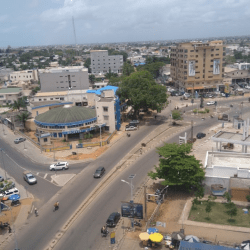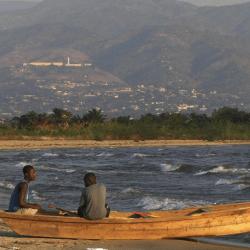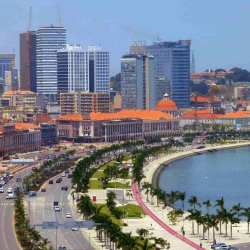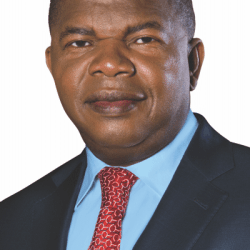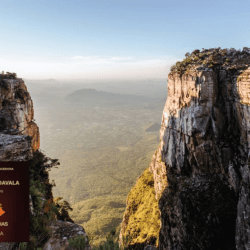In Angola, numerous species are known to be spread across several regions. Gorillas, Chimpanzees and Parrots live in the Maiombe forest, in the wetter natural areas of the north, center, center and east, we can observe the Golungo, the Giant Sable Antelope, an endemic species in the world and in danger of extinction, the Seixa, and the Elephants. In the drier regions, the Fan Goat, the Desert Guelengue or Orix, the Wildebeest, the Impala, the Cheetah, the Buffalo, also the Elephant, the Zebra and the Giraffe appear. Animals more or less common to the whole territory are the Hyena, the Sable Antelope, the Lion, the Leopard and the Hippopotamus.
In the marine fauna there is also a huge variety of fish and shellfish that are also found in the rivers and, alongside these, we can also see crocodiles and alligators.
Angola
Angola is a country on the west-central coast of Southern Africa. It is bordered by Namibia to the south, the Democratic Republic of the Congo to the north, Zambia to the east, and the Atlantic Ocean to the west.

Angola has an exclave province, the province of Cabinda, that borders the Republic of the Congo and the Democratic Republic of the Congo.



The capital and most populous city is Luanda.
Basic facts
Capital: Luanda
Official language: Portuguese
Currency: Angolan Kwanza
Government: Republic, Presidential system, Unitary state
Population: 34.5 million (2021) World Bank
Dialing code: +244
| Urban Population, 2020: | 66.8% |
| Female Population, 2020: | 51.2% |
| GDP: | US$ 58.5 Billion |
| GNI Per Capita 2016: | US$ 2,230 |
| Inflation Rate December 2020: | 25.1% |
| Crude Birth Rate 2020(per 1000): | 42.72% |
| Human Development Index (rank / 189): | 148 |
| Human Development Index (scale 0 to 1): | 0.581 |
| Membership Date: | 23/06/1980 |
| Cumulative Approvals (1980-2021): | UA 2.95 Billion |




As of 2021, the Angolan population is estimated at 32.87 million. Angola is multicultural and multiethnic. Angolan culture reflects centuries of Portuguese influence, namely the predominance of the Portuguese language and of the Catholic Church, intermingled with a variety of indigenous customs and traditions.
Angola has vast mineral and petroleum reserves, and its economy is among the fastest-growing in the world, especially since the end of the civil war; however, economic growth is highly uneven, with most of the nation’s wealth concentrated in a disproportionately small part of the population.
The standard of living remains low for most Angolans; life expectancy is among the lowest in the world, while infant mortality is among the highest.
The largest investment and trade partners are China, the European Union, and the United States.
Angola is a member of the United Nations, African Union, the Community of Portuguese Language Countries, and the Southern African Development Community.
